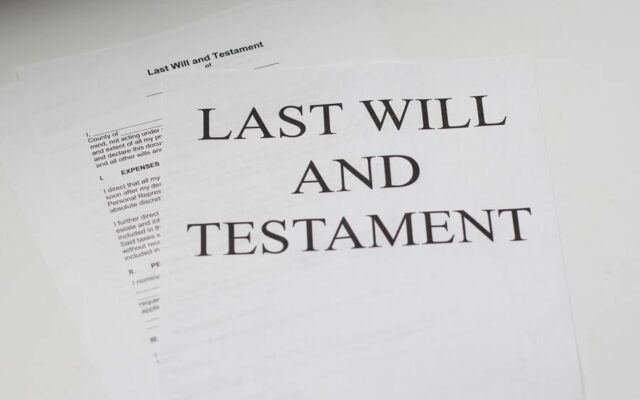
The law can definitely be a source of confusion. One of the reasons is that there are multiple areas of the law that use seemingly foreign words and phrases. Estate planning is one of these areas. To help avoid some confusion, we’ve taken some type to explain a host of estate planning terms. Please contact a skilled estate planning attorney now to create an estate plan or review an existing plan.
Definitions to Common Estate Planning Terms
ASSETS/PROPERTY- The word “property” that is used extensively in estate planning essentially means “assets”, which is anything of value. This includes, vehicles, antiques, boats, RVs, ATVs, real property, cash, bank accounts, firearms, life insurance, IRAs, investment accounts, securities, bonds, household furnishings, jewelry, a business, accounts receivable, etc. The list goes on. Some assets are considered probate assets, and some are nonprobate assets.
BENEFICIARY – A recipient of estate, property, Trust property, life insurance policy proceeds, retirement plans, IRAs and joint tenancy and transfer on death accounts.
CODICIL – A document that amends an existing Will.
COMMUNITY PROPERTY– All property, whether real or personal, acquired by a married couple after marriage, except property acquired after marriage by either of them by gift or inheritance. Each spouse has a one-half undivided interest in each and every item of community property. “Separate property” means the property of a spouse acquired before marriage and after marriage by gift or inheritance. Separate property can be converted to community property by co-mingling or specific transfer documents.
DIRECTIVE TO FAMILY AND HEALTH CARE PROVIDERS– Also referred to as a “Living Will,” this is a document which tells medical care providers and family members of a dying person of the dying person’s wishes regarding the withdrawal or withholding of some or all life-sustaining treatment of the dying person who is unable to communicate and whose death is imminent whether or not life-sustaining treatment is used.
DURABLE POWER OF ATTORNEY – A document which provides for someone to have the power to act for a disabled or incompetent person (“the Principal”) which means that the power holder or “Attorney in Fact” can generally manage and dispose of the assets of the Principal for the benefit of the Principal during the period of disability or incompetence. A Durable Power of Attorney terminates at the death of the Principal.
ESTATE TAX – WASHINGTON STATE refers to a Washington Estate Tax that functions very similar to the Federal Estate Tax with a Credit Shelter Amount currently $2,193,000. This is $10,727,000 less than the federal Credit Shelter Amount. However, the Washington estate tax rates are graduated from 10% to 20%.
GUARDIAN– The person appointed by a court with the care and custody of a minor or special needs child or an adult incapable of effective management of their daily living. You may designate a guardian or guardians in a Will to express your preference to the court.
PERSONAL REPRESENTATIVE– the name given to the person (in the past referred to as an “administrator” or an “executor”) who is appointed by a court to administer the estate of a deceased person, generally having power to gather and inventory all assets, pay all bills and claims, and distribute estate property in accordance with provisions of the Will (or as provided by law where there is no Will) usually without court supervision. The Personal Representative is also responsible to accounting for all estate income and disbursements.
SPECIAL DURABLE POWER OF ATTORNEY (To Facilitate Qualification of Assistance)- A power of attorney directed specifically and exclusively to allowing the Attorney-in-Fact to take the necessary steps and deal with the necessary agencies to qualify the Principal to receive governmental and private agency benefits, namely, Medicaid, COPES and the like.
SPECIFIC BEQUEST/DEVISE – A specific bequest is a testamentary gift of a specific item or items of personal property such as artwork, vehicles, collectibles, and can also include interests in an entity or incidents of ownership in investment assets or accounts, that can be easily identified and distinguished from other personal property in an estate, and that is being gifted to a specific beneficiary before the distribution of the residuary estate. A specific devise is a similarly distributed gift but means a gift of real property distributed outside of the residue of the estate.
TRUSTEE-The person in charge of administering property placed in Trust for the benefit of the named beneficiaries. The powers and authority of a Trustee are governed by the provisions in the document or instrument creating the Trust and also by several lengthy and complex Washington statutes.
Contact The McWilliams Law Group for Help
The established California and Washington estate planning attorneys at the McWilliams Law Group help you prepare for the future today.
Our firm provides legal assistance with the following:
- Will drafting, execution and review
- Living Trusts
- Advance healthcare directives (living Wills)
- Powers of attorney
- Estate and gift tax issues
- Guardianships and conservatorships
- Choosing the appropriate executor and/or trustee
The skilled attorneys at our firm can help thoroughly analyze your estate and strategize the best means of transferring your assets, minimizing taxes, establishing guardianship, and supporting philanthropic causes. Contact us now and let us help protect your personal security, family, and legacy.


